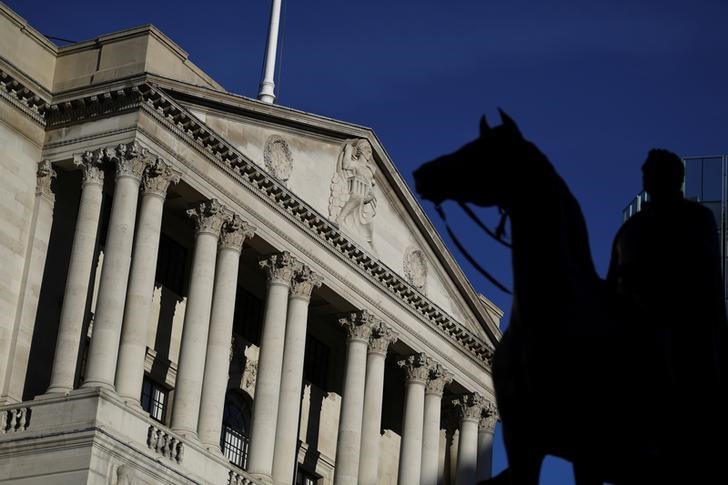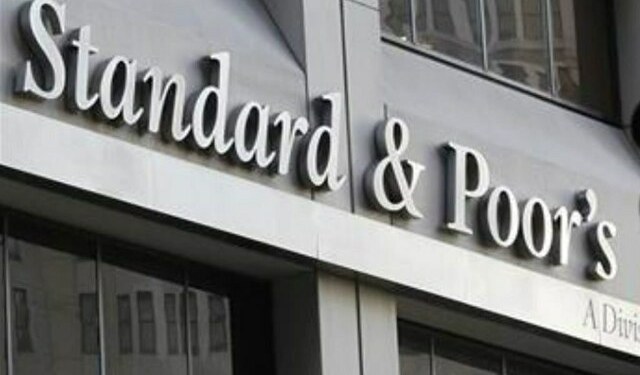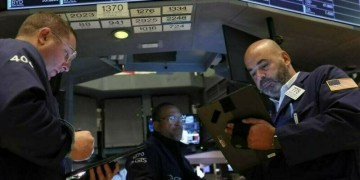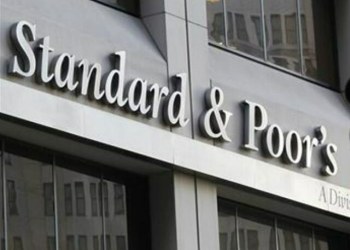 © Reuters. FILE PHOTO:A statue is silhouetted against the Bank of England in the City of London
© Reuters. FILE PHOTO:A statue is silhouetted against the Bank of England in the City of LondonBy William Schomberg
LONDON (Reuters) – The Bank of England is expected to say on Thursday that another interest rate increase could be nearing as Britain’s economy grows faster than expected ahead of its departure from the European Union in just over a year’s time.
The BoE raised borrowing costs for the first time in more than a decade in November, reversing a cut made in 2016 as the country reeled from the Brexit vote shock and taking them back to 0.50 percent.
The world’s sixth-biggest economy is lagging behind a strong global pick-up, due to a rise in inflation and fall in business confidence since the referendum.
But it has fared better than most forecasts made at the time of the Brexit vote, and it ended 2017 stronger than the BoE expected. The central bank has said it plans to gradually scale back its emergency levels of stimulus.
It is widely expected to keep rates on hold on Thursday as it weighs up the impact of November’s move on the economy.
Investors are more focused on whether any of the nine rate-setters voted for a hike. That would be seen as adding to the likelihood of an increase in May, the next time the BoE is due to update its economic forecasts.
Investors also want to see what the central bank’s updated forecasts for the economy say about its rate plans.
Investors see a nearly 50-50 chance of a new hike in May and some economists are predicting two increases this year alone. That would represent a big change from the BoE’s signal as recently as November of two hikes over the next three years.
One major factor beyond the control of Governor Mark Carney and the rest of the Monetary Policy Committee is what will happen to Britain’s attempts to negotiate a new trade relationship with the EU, its main trading partner.
Prime Minister Theresa May wants to clinch a transition deal next month to secure full access for Britain to EU markets for about two years after it leaves the bloc in March 2019.
“Although the MPC won’t explicitly say so given political sensitivities, we expect their decision in May to be almost entirely determined by whether or not a transitional deal has been fully agreed and signed by then,” UBS fixed income strategist John Wraith said.
After May, the BoE risks being unable to hike rates because soon after London and Brussels could be wrangling over their long-term relationship, weighing on the economy, he said.
SIGNS OF LIFE
There are signs that Britain’s economy is finally working off the hangover of the 2007-09 crisis.
Pay growth has gathered a bit of pace and Carney says it might overtake inflation this year, restoring some spending power to households. At the same time, many exporters are riding a wave of demand from the world economy.
The BoE is expected to raise its growth forecasts on Thursday. But it might also lower its view on inflation in two or three years’ time after sterling rose recently and bond yields in financial markets jumped, potentially reducing the chances of an intensification of its rate hike plans.
Reminders remain of the fragility in Britain’s economy as it faces up to leaving the EU.
The services, factory and construction sectors all showed weaker-than-expected growth in January, according to surveys. The housing market, which is key for consumer confidence, has steadily lost momentum since the Brexit vote.
Alan Clarke, an economist with Scotiabank, said stronger pay growth in the coming months was likely to seal the case for a rate hike in May, even if the BoE was unlikely to be explicit about this on Thursday.
“I think the message will be subtle and they will keep their options open,” he said.
Source: Investing.com




























